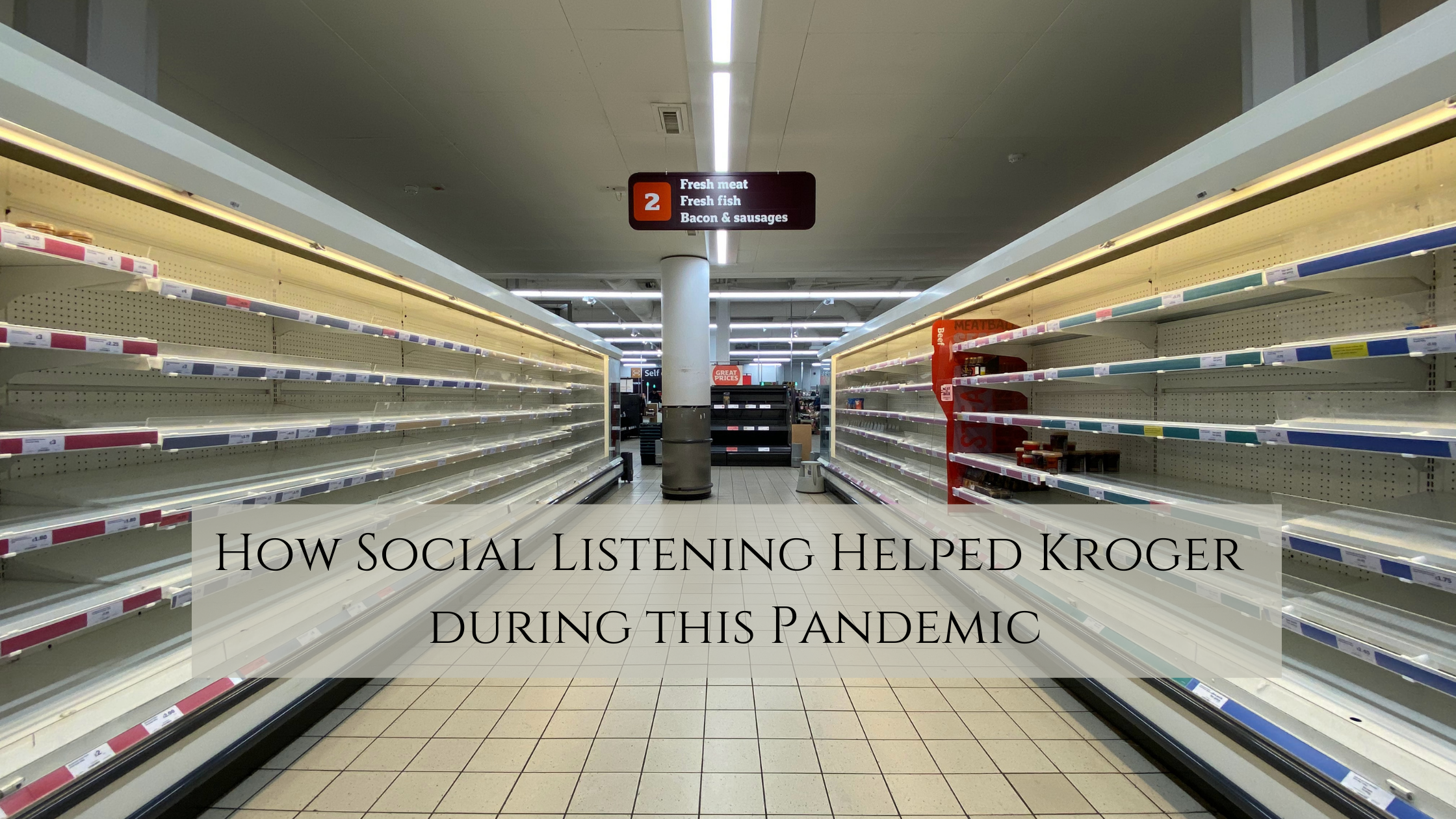When the pandemic set in, every aspect of life shifted to the online sphere. The use of social media which has forever been on the rise saw a phenomenal bump up in the past few months. Brands realized the effectiveness of social listening in managing brand reputation. Here’s how social listening helped the grocery chain, Kroger, during the pandemic.
The Brand in Picture – Kroger, America’s Grocery Giant
The American chain of supermarkets, Kroger Co. is the largest grocery chain in America and the second-largest hypermarket chain in the world. All this without even expanding overseas. This brand boasts of having 3000 locations in the United States and of employing over 435 thousand people.
Being a massive brand with an equally massive reputation to manage can be tough especially during uncertain times. This is why this 136-year-old grocery store relied on social listening during the COVID-19 pandemic.
Grocery stores saw a surge in demand during the initial months of the pandemic. Sales in the grocery sector shot up by almost 27% in March. Though the pandemic increased grocery sales it threw some uncertainty even to this industry, which usually depends on predictable buying patterns. However, the enormous increase in demand put excess strain on the supply chain. Most supermarkets realized their weaknesses in maintaining inventory and handling safe-shopping protocols et cetera.
At such an hour, Kroger keyed into consumer sentiments to know about their needs in real-time.
How Social Listening Helped Grocery Chain Kroger?
Kroger adopted a three-pronged approach to marketing during the pandemic. They worked closely with a partner agency to listen to and analyze daily conversations in the US. The three pillars of their marketing strategy included:
- Educating customers,
- Customer support, and
- Sending out positive/uplifting messages
Helped to Identify Trends
The brand paid attention to the conversation about the cultural unrest and the Black Lives Matter movement. “The team did a really nice job of quickly identifying and elevating black creators,” said Emily Hartman, Kroger’s director of brand building.
Helped in Managing Marketing Operations
Kroger had been investing millions in forward-looking technology over the years. However, the suddenness of the pandemic caught the brand off guard and they were failing to keep pace. This is when Kroger worked extensively with the partner firm to get insights via social listening analyses. The executives knew that such reporting is important for any business. However, they noticed that it had become one of the top things on the agenda as a driver for customer engagement on social media during the pandemic.
“It was the quickest way to get feedback from our customers and consumers, in general, on what was going on in sort of the macro [sense],” Hartmann said about Kroger’s social listening. “Some of the things you were reading, you could actually [take action] on it far more [effectively].”
Helped Derive Key Consumer Insights to Stay in Business
Being able to listen to the needs of the customers helped Kroger stores to install customer needs faster. This allowed the stores to give out the information. They answered consumer concerns regarding safety measures and changes in store operations. Kroger was also able to implement changes quickly, like when people suggested early shopping hours for senior citizens.
Helped them Advertise Better
The team at Kroger was able to listen to what people were saying on social media. They could even pick up on the rising sentiment of empathy for frontline workers. And almost immediately, they were able to deploy messaging centered around the employees, particularly store associates.
The Coronavirus hit businesses across the world and most businesses were caught off-guard. As a grocery chain, Kroger is just another one among such brands. How they dealt with the adverse conditions sets them apart. And, the way social listening helped Kroger during the pandemic shows the power of social media and automation when they work together.

